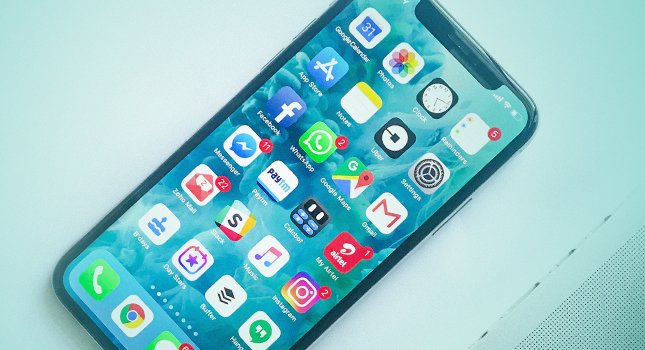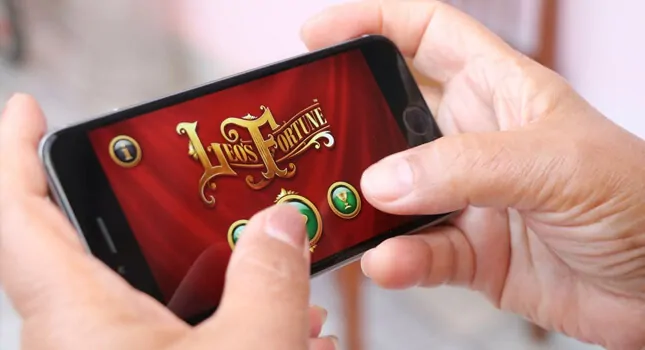This video of a Hong Kong woman wailing in agony after her cell phone dies is just one example of technology addiction that is taking the globe by storm.

A Hong Kong woman was recently captured on video wailing in agony after her cell phone battery died. The woman appears to throw a tantrum similar to young children who do not get what they want and cannot yet self-regulate.
The video went viral and has been watched over one million times. Viewers find it ridiculous and funny — yet it depicts a frightening example of how technology can affect people’s lives and well-being and sheds light on the reality of technology addiction.
What is Technology Addiction?
Most of us rely on technology for our work, communication, and now also a large part of our social interactions. Where is the line when it comes to being addicted to this technology?
Technology addiction is still a new and controversial term, as there is no official “technology addiction disorder.” However, the woman in the viral video is not the only person in the world who experiences such distress when access to technology is cut off. Treatment centres are now popping up that specialise in the study and treatment of internet and technology addiction, especially in the Asia Pacific.
Technology addiction occurs when people become dependent on and use technology such as their smartphones, laptops, PDAs, and the internet compulsively, which leads to a similar pattern of symptoms as people struggling with other addictions such as gambling or drug addiction.
Both substance and process addictions, such as technology addiction, cause individuals significant distress and will interfere with people’s relationships, social responsibilities such as work and school, physical health, and mental health and well-being.
Addiction is also characterised by the experience of withdrawal symptoms, such as agitation, anxiety, and depression when a person cannot access their substance or participate in the addictive behaviour. Researchers found in their survey of thousands of college students from all over the world that many experienced alarming withdrawal symptoms such as anxiety, irritability, loneliness, and depression when asked to go 24 hours without any technology — and a “clear majority” failed to voluntarily abstain from using any technology for that time period.
Technology addiction often includes addiction to the internet which has many subtypes such as social media, internet gaming, and cybersex addictions. Smartphones undoubtedly fuel this addiction as the constant ability to access the internet is in the palm of our hands. Some are also likening smartphones to slot machines in the way they create addictive tendencies and compulsive behaviours.
Hong Kong and Singapore top the world when it comes to smartphone use, each with 87% of the population owning a smartphone. This means the potential for problematic use of this technology is huge.
How is the Flood of Technology Affecting People in Hong Kong and Around the World?
Whether or not you are experiencing a full-fledged technology or internet addiction, modern tech devices are impacting our lives and not always for the better.
In a Gallup poll over half of the people surveyed checked their smartphones several times an hour or more. The inability to put down our devices has many consequences, and a full-on addiction that impairs an individual’s quality of life is just one of them. Here are a few of the negative effects these devices are causing:
Driving distractions.
Using technology while driving poses risks that can be compared to drinking alcohol and driving. Sending messages, checking email and social media updates, and the compulsive use of a cell phone while driving could be an indicator that technology use is out of control. Many states in the US have now made using handheld devices while driving illegal as this preoccupation can be deadly.
Sleep problems.
Bringing technology into the bedroom is affecting our sleep habits. In a large study of American women 21% checked their Facebook in the middle of the night. Looking at your phone in the middle of the night will send your brain into a spiral of activity causing further sleep problems. In a study of Hong Kong students, 17% were found to be addicted to the internet and of that number 52% had difficulty sleeping. Most doctors recommend taking a break from the screen for at least 30 minutes to an hour before bed, especially if you are having problems falling asleep.
Impaired relationships.
Drug and alcohol addiction will affect one’s relationships, and technology addiction is no different. One woman’s husband calls her laptop which she brings to bed with her every night, “the other man.” When internet or technology use interferes with one’s ability to maintain healthy relationships with friends and family, addiction may be present.
Job loss or failing grades.
As with all addictions, internet or technology addiction will progress. Over time people may find their ability to control their use of technology — including compulsively checking social media or playing internet games — completely diminishes to the point where they work on auto-pilot. This loss of time to the addiction will interfere with the ability to complete work and meet important deadlines.
Prevalence and Treatment of Technology Addiction
In Asia, the concern about technology use and specifically excessive internet use, has led to many countries opening addiction treatment centres to specifically address these addictions. China alone has 300 treatment centres for youth addicted to the internet, and India recently added a tech de-addiction centre in its silicon valley of Bangalore.
Reports in China place technology addiction rates of its youth between 13-26%. In Hong Kong one study reports 22% of youth participants met the criteria for addiction to the internet. While technology addiction may not have all the same observable devastating consequences as substance addiction, for many the shame and guilt and deteriorating quality of life and relationships is a concern that should not be ignored.
If you find you cannot control your technology use on your own, or that it is causing significant distress in your life, there is help available. The Cabin, Asia’s leading alcohol and drug rehab in Hong Kong specialises in treating behavioural addictions as well as substance addictions. An assessment by an addiction treatment specialist is the best way to determine what you can do to get your life back on track after addiction.


